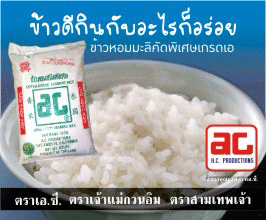FAMILY-BASED IMMIGRANT VISAS (PART 1)
In this week’s article, I will be reviewing family-based immigrant visas. Because I will be covering a lot, I will be splitting this article into two parts: part 1 and part 2. This week’s article is part 1 and will cover the different categories of family-based immigrant visas, wait periods, priority dates, and requirements regarding age and financial ability of the sponsor. Part 2 of the upcoming continuation will cover the filing of the petition (known as the “Petition for Alien Relative”), domicile requirements, and etc.
FAMILY-BASED IMMIGRANT VISAS
Under U.S. Immigration Law, there are two main categories of Family-based immigrant visas. The two categories are (1) “Immediate Relatives", and (2) Family Preference Immigrant Visas.
(1) Immediate Relative Immigrant Visas
These types of visas are based on the relationship between a United States Citizen sponsor and their immigrant relative. The closeness of the family relationship is described as an “immediate relative”, and under these categories, there is no limit to the number of immigrant visas that may be issued.
Examples of Immediate Relative Visas categories include:
• Immediate Relative, Category/Type 1 (IR-1): Husband or Wife of a U.S. Citizen
• Immediate Relative, Category/Type 2 (IR-2): Unmarried Child(ren) under 21 years old of a U.S. Citizen.
• Immediate Relative, Category/Type 5 (IR-5): Parent(s) of a U.S. Citizen who is at least 21 years old
• Immediate Relative, Category/Type 3 and 4, are reserved for orphans adopted abroad by a U.S. Citizen and orphans to be adopted in the U.S. by a U.S. citizen, respectively.
(2) Family Preference Immigrant Visas
These types of visas are based on more distant, family relationships, either with a United States Citizen or a Lawful Permanent Resident (“LPR”/Green Card holder). Because these Visas are based on more distant, family relationships, the U.S. government limits the number of Visas they issue out per category each fiscal year.
Examples of the family preference categories and their fiscal year numerical limits include:
• Family First Preference (F1): Unmarried sons and daughters of U.S. citizens, and their minor children, if any (23,400)
• Family Second Preference (F2): Spouses, minor children, and unmarried sons and daughters (age 21 and over) of LPRs. Note: Most of the visas available for this category are allocated to spouses and children, while the remainder is allocated to unmarried sons and daughters. (114,200)
• Family Third Preference (F3): Married sons and daughters of U.S. citizens, and their spouses and minor children. (23,400)
• Family Fourth Preference (F4): Brothers and sisters of U.S. citizens, and their spouses and minor children, provided the U.S. citizens are at least 21 years of age. (65,000)
Note: Grandparents, aunts, uncles, in-laws, and cousins cannot sponsor a relative for immigration.
Priority Dates and the Numerical Limitations for Limited Family-based Preference Categories
As mentioned above, Immediate Relative based visas do not have limits on the numbers being issued. However, Family preference immigrant visas do. When the number of applicants for a specific category exceeds the available numbers, the applicant must wait and may not yet begin the immigration process (beyond the initial filing of the alien petition for alien relative). Any future available immigrant visas will be issued in the chronological order in which the petitions were filed using their priority date; thus, the filing date of a petition becomes what is called the applicant's priority date. Because these immigrant visas cannot be issued until the applicant’s priority date is reached, and this may take a waiting period of several years or more, we recommended that anyone in this situation file as soon as they know they want to immigrate.
Age and Financial Ability Requirements for Sponsors
U.S. Sponsor Minimum Age Requirement
U.S. citizens must be 21 years or older to file petitions for their parents and/or siblings. There is no minimum age for a sponsor to file petitions for all other categories of family based immigrant visas. However, a U.S. citizen or lawful permanent resident (LPR) must be at least 18 years of age and have a residence (domicile) in the United States before he or she can sign an Affidavit of Support.
The Affidavit of Support Under INA Section 213A and the Poverty Guidelines
I covered financial support of immigrant visas in a prior article published several weeks ago, but just in case you missed it, I will go over it again here. Each year, the Department of Health and Human Services publishes in the Federal Register an income-poverty guideline. The United States Immigration and Naturalization Service (USCIS) uses this guideline to determine whether or not a person has adequate means to financially support their relative and are not likely to rely on the U.S. government for financial support. This guideline basically lists the minimum amount of income a sponsor must make in order to sponsor their relative for adjustment of status to that of a lawful permanent resident (aka Green Card). As proof to show that you are qualified, you will be required to submit an Affidavit of Support form, information and documents regarding your last three years of Income Tax, as well as information regarding your household size. (Household size includes the sponsor themselves, the sponsor’s spouse if married, any dependents, and any lawful permanent residents that you previously submitted an affidavit of support form for and for whom you are currently still obligated to support). If the sponsor’s income does not meet the minimum income requirements as outlined in the income-poverty guideline, there are alternative ways to satisfy the requirements such as using a possible “Joint Sponsor”, supplemental assets, or another household member’s income. In some cases, you many also use the income of the intending immigrant. Please contact me for more information about these other possible ways.
This was part 1 of Family-based Immigrant Visas. Please stay tuned for part 2 of this topic, in which I will cover the filing of the petition (known as the “Petition for Alien Relative”), domicile requirements, and etc. If you have questions, or need assistance, please contact my office at (818) 846-5639, or my Thai direct line at (818) 505-4921. If you have any questions that you would like to be answered in future articles, or would like to share your opinions or comments, please email me at: JC4LAW@HOTMAIL.COM. Also be sure to check us out on the web at: WWW.JC4LAW.COM, and on FACEBOOK at: https://www.facebook.com/ThaiAttorney Be sure to follow (and "like") me for the most recent updates in the law! For those in Thailand or outside of the United States, I am now reachable using the LINE app. My LINE ID is: JC_Esq On YouTube, search "Joseph Chitmongran" (LIKE and SUBSCRIBE to be notified of new videos in the future).
Disclaimer: The information contained herein have been prepared for informational purposes only and are not to be considered legal advice unless otherwise specified. If you have a specific question regarding your personal case, please contact the Law Offices of Joseph Chitmongran for a full consultation.


































